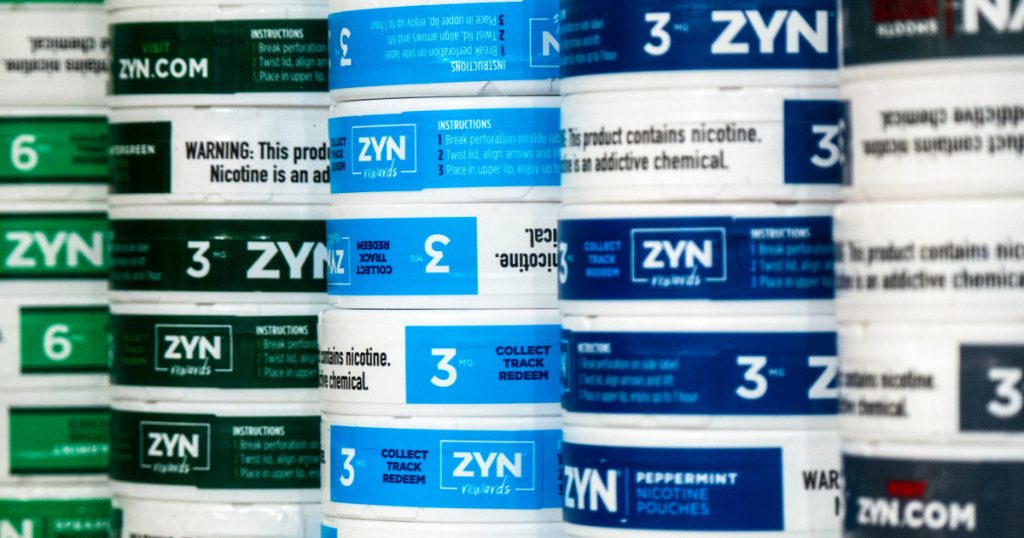The fastest-growing nicotine product in the U.S., Zyn, has been experiencing a shortage recently, causing frustration among its customers. The smokeless nicotine pouch, which users tuck into their lips to get a buzz, has seen a surge in demand over the past year, thanks to social media influence and mentions from popular podcasters. Sales of Zyn have skyrocketed, with shipments up by 80% year over year. However, the increased attention has led to a shortage, with an inventory constraint due to high demand cited as the reason by Philip Morris, the company that acquired Zyn maker Swedish Match for $16 billion.
Online and in interviews with NBC News, Zyn users have expressed their frustration with the shortage, with many saying they have had to switch to other brands while waiting for Zyn products to become available again. Some customers have even referred to the shortage as a “Zyndemic,” with shortages reported in various regions across the country. Speculation about whether a factory fire at a Swedish Match facility in March may have affected supply has been circulating online. However, the company representative initially denied any risk of a shortage due to the incident.
To address the shortage issue, Philip Morris has stated that Swedish Match is making investments to expand and diversify production in the U.S., particularly at its Owensboro, Kentucky, facility. The factory is taking steps to increase production capacity and make process adjustments to ensure a more consistent supply of Zyn products in the future. In addition, Philip Morris is working on constructing a new U.S. factory specifically for Zyn production. Despite these efforts, it may still take some time for supplies to return to normal levels, with the company’s CFO stating that a full recovery is not expected until the end of the year.
While most Zyn sales occur in stores, the decision to halt shipments from the Zyn.com website in response to a subpoena from the District of Columbia has raised concerns about potential further impacts on supply. Some customers worry about whether they will be able to find their preferred Zyn products in stores as well. Despite the challenges, loyal Zyn users like James Perkins remain committed to the brand, citing the poor quality and intense flavors of other products that have tried to replicate Zyn’s success. The company’s focus on expanding and improving production capabilities indicates that efforts are being made to address the shortage and ensure consistent supply in the future.


